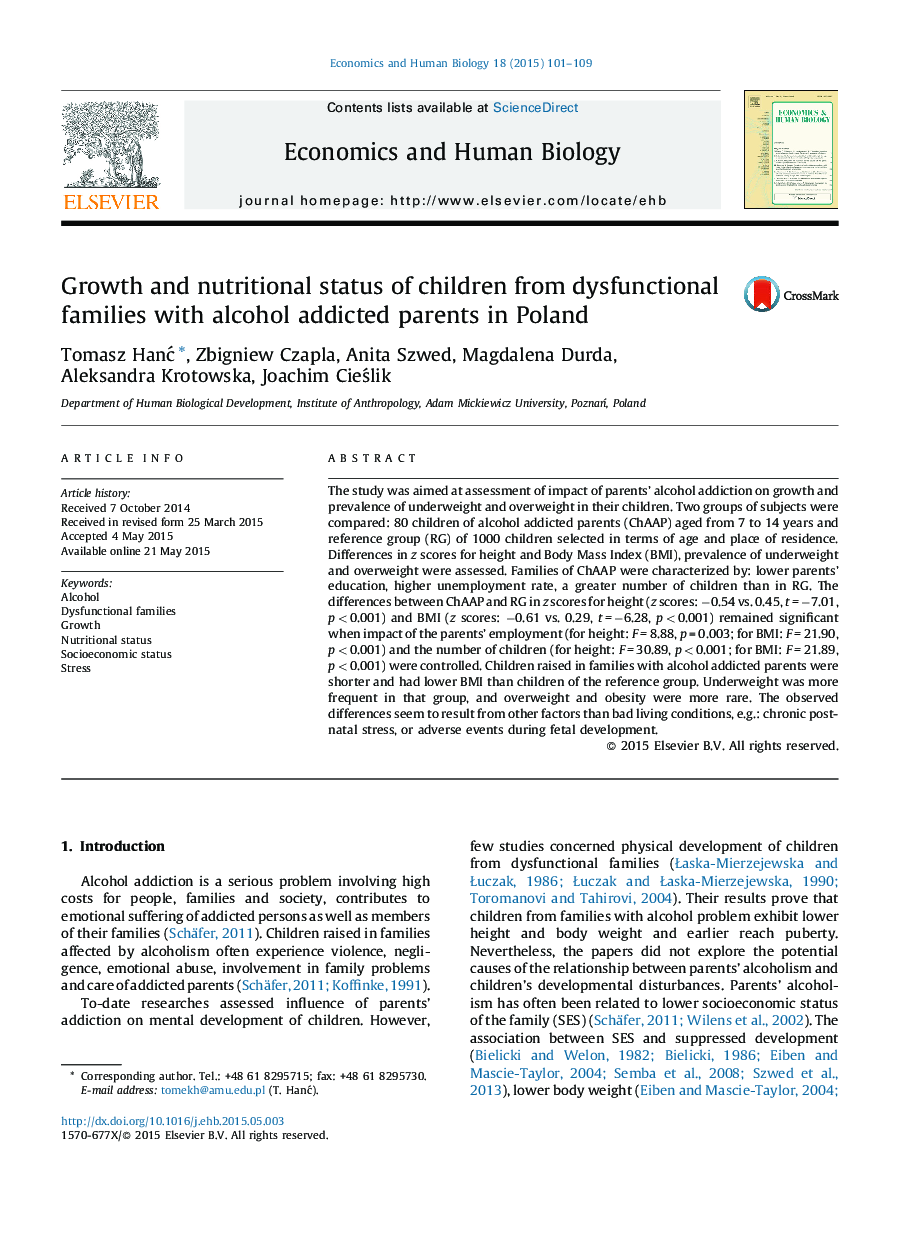| Article ID | Journal | Published Year | Pages | File Type |
|---|---|---|---|---|
| 5056976 | Economics & Human Biology | 2015 | 9 Pages |
â¢Alcohol addiction of parents affects the growth and nutritional status of their children.â¢Families with parents addicted to alcohol are characterized by significantly lower socioeconomic status.â¢The impact of parental alcoholism on children's growth remains significant when controlled for socioeconomic status.â¢The suppression of growth is rather an effect of chronic stress than poverty.
The study was aimed at assessment of impact of parents' alcohol addiction on growth and prevalence of underweight and overweight in their children. Two groups of subjects were compared: 80 children of alcohol addicted parents (ChAAP) aged from 7 to 14 years and reference group (RG) of 1000 children selected in terms of age and place of residence. Differences in z scores for height and Body Mass Index (BMI), prevalence of underweight and overweight were assessed. Families of ChAAP were characterized by: lower parents' education, higher unemployment rate, a greater number of children than in RG. The differences between ChAAP and RG in z scores for height (z scores: â0.54 vs. 0.45, t = â7.01, p < 0.001) and BMI (z scores: â0.61 vs. 0.29, t = â6.28, p < 0.001) remained significant when impact of the parents' employment (for height: F = 8.88, p = 0.003; for BMI: F = 21.90, p < 0.001) and the number of children (for height: F = 30.89, p < 0.001; for BMI: F = 21.89, p < 0.001) were controlled. Children raised in families with alcohol addicted parents were shorter and had lower BMI than children of the reference group. Underweight was more frequent in that group, and overweight and obesity were more rare. The observed differences seem to result from other factors than bad living conditions, e.g.: chronic post-natal stress, or adverse events during fetal development.
